Naturland Fair
Uganda: Sesame, social scheme and structural change
A photographic behind-the-scenes of a partner visit in Uganda with a working rights point of view
Thomas Beutler and Ann-Kristin Schmidt, Naturland e.V.
What do the experts from the Fair and Social Responsibility department at Naturland do when they visit an international partner? They try to understand the production and processing of the respective agricultural goods through a special lens: The human lens, i.e. realities of the people behind the Naturland partner. How do they produce the products? What are their working conditions in the processing? Are human and working rights respected? In short: Does the Naturland partner comply with the Naturland social standards as agreed on in their contracts? And if not: How can the Naturland partner improve the situation?
Follow Thomas Beutler, technical advisor for social responsibility, and Ann-Kristin Schmidt, expert for fair trade, on their visit at Naturland Partner Gulu Agricultural Development Company (GADC) in Uganda through the following pictures.
Service & Expertise
-
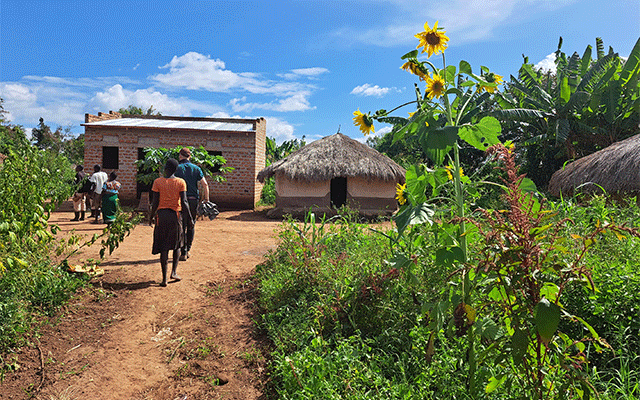 1/8
1/8Between destruction & opportunities
Northern Uganda is still marked by the consequences of one of Africa's longest and most violent conflicts. The conflict between the Lord's Resistance Army (LRA) and the Ugandan army (1987-2006) forced over 90 percent of the population to flee to camps, some of which still exist today. Tens of thousands of civilians lost their lives in the conflict. According to UN figures, up to 65,000 children and young people were abducted and forcibly recruited by the LRA and numerous human rights crimes were committed. Despite the failure of peace negotiations, the LRA withdrew from Uganda in 2006 with a fragile ceasefire.
Today, most of the destroyed rural infrastructure has been rebuilt. However, entire areas of land have not been used for agriculture - in some cases for decades. In addition to all the ongoing political, economic and social after-effects of the violent conflicts, this offers a special opportunity for farmers, as many soils are in very good condition: The chance to grow organic cash crops in addition to subsistence farming and thus generate additional family income.
-
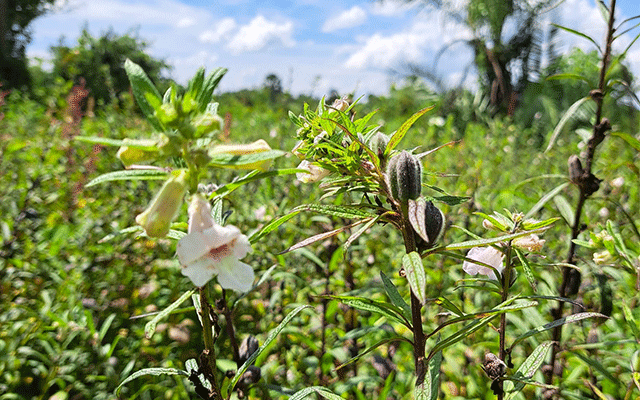 2/8
2/8Sesame: From India to Uganda
Sesame originates from East Asia and has been cultivated in India since the third millennium BC. Today, the herbaceous, annual plant is cultivated in warm regions around the world. The fruits of the sesame plant are finely hairy, elongated capsules up to 3.5 cm long containing the small, flattened seeds.
Due to the favorable weather conditions and healthy soil, farmers in northern Uganda can harvest up to twice a year. Together with cassava, maize, chia and soy or peanuts, sesame is grown in a wide variety of crop rotations to maintain the quality of the soil. These crops beside sesame are grown for personal use and for sale at local markets.
-
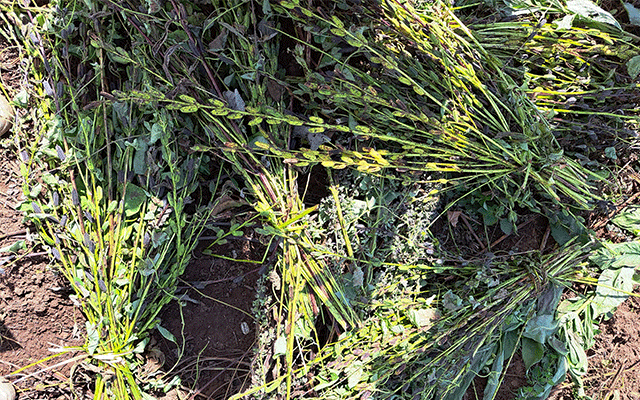 3/8
3/8Smallholder farmers’ sesame harvest
Before reaching full maturity, the sesame seeds are harvested and tied together in bunches. Harvesting is often done by hand by the farming families. Families with somewhat larger cultivation areas occasionally hire workers to help with the harvest. They are paid at a price per area that is set regionally informally.
To dry the sesame fruits, the woven bunches are stacked on wooden racks. One difficulty in the drying process is the weather conditions: It must not rain if possible. Due to changing weather conditions, however, this is often a challenge for farmers.
-
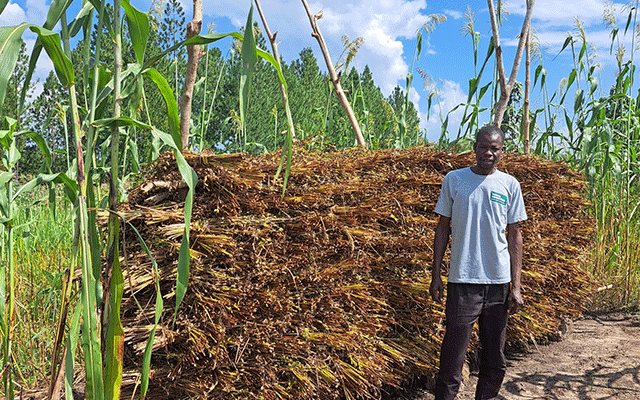 4/8
4/8Social standards in agriculture
The Naturland social standards are based on the UN Universal Declaration of Human Rights, the UN Convention on the Rights of the Child and the ILO (International Labour Organization) core standards. They cover the entire supply chain (except transportation).
To implement them locally, Naturland technical experts must be familiar with the respective labor laws and difficulties in the social sector in the country or region.
-
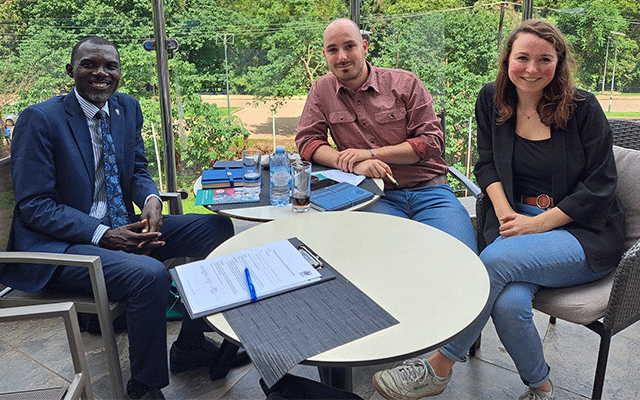 5/8
5/8Networking for labor rights
For this reason, networking with local experts is necessary: The social responsibility experts are gradually establishing connections with the national offices of the UN's International Labour Organization (ILO) and other relevant local organizations.
In Uganda’s capital Kampala, they met Jacqueline Banya from ILO and labor law expert Douglas Opio from the Federation of Ugandan Employers and learnt: The biggest challenge in Uganda are the prevailing informal working conditions. An important step is therefore the formalization of working conditions so that workers benefit from existing formal social structures, know their rights and thus have an increased chance of escaping the so-called "working poor".
-
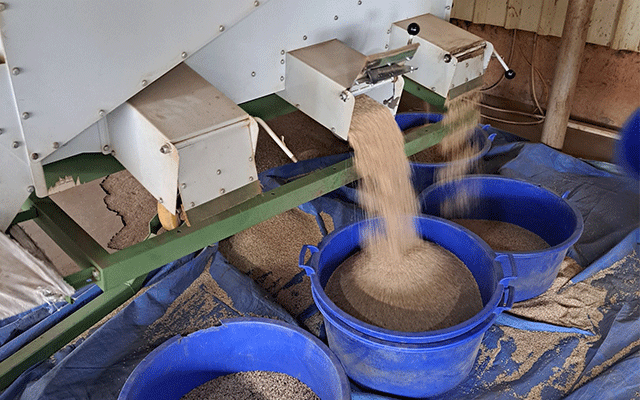 6/8
6/8Quality Assurance from a social responsibility perspective
The aim of quality assurance visits in the social sector by Naturland experts is to understand the situation and organization of working conditions with focus on Naturland social standards. In addition, the enterprises are made aware of structures that are already functioning well and are worth maintaining.
To gain an overview of the working conditions, the Naturland experts take a tour of the farm, examine documents and conduct interviews with workers as well as farm management. The findings can open up areas of improvement to comply with national law, passing the Naturland inspections and obtaining and retaining the Naturland certificate in the long term. Ultimately, this increases the workers’ well-being.
-
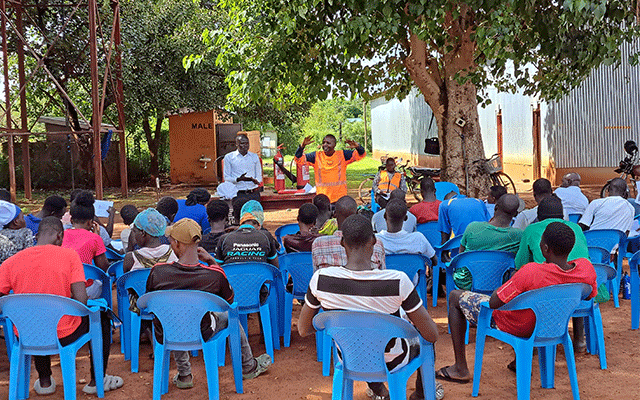 7/8
7/8Better training for more employee satisfaction
The picture shows GADC staff receiving training on how to deal with fire emergencies from police officers responsible for firefighting. In addition to regular training to improve occupational safety, GADC also offers its employees free meals, drinking water and a well-functioning, anonymous complaints management system. This significantly increases employee satisfaction.
Generally, challenges in Uganda are the lack of a valid minimum wage and that the registration of workers in the NSSF system, the Ugandan pension fund, often does not work. This is partly due to employers’ lack of knowledge on how to register their workers. Sometimes registration also fails because the workers cannot present an ID document. Applying for such a document in Uganda is often a very lengthy and bureaucratically complex process.
-
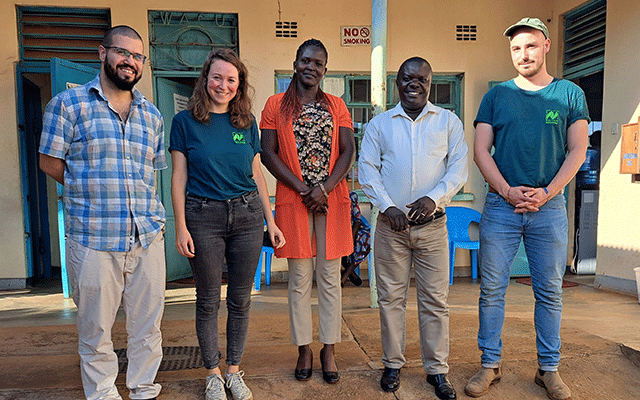 8/8
8/8Building personal relationships is essential
At the end of a QA visit, there is a closing discussion, where Naturland‘s social experts present their findings. With GADC management, this was very fruitful and productive exchange, enabling both sides to better understand the other‘s perspectives and context.
It is Naturland‘s deep belief that building personal relationships through visits on site and regular contact ensures continuous development and hence an increased well-being of the workers.
All images: Thomas Beutler/ Ann-Kristin Schmidt, Naturland e.V.
Authors
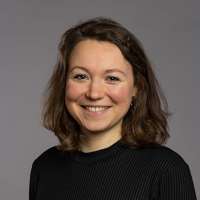
Ann-Kristin Schmidt is specialist for fair trade and social responsibility at Naturland and supports the Naturland Fair partners is Africa in implementing the fair trade standards. Moreover, she is in charge of networking activities in social and community-supported agriculture.
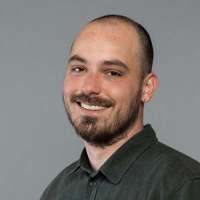
Thomas Beutler is expert for social responsibility at Naturland. He supports partners around the world in implementing decent working conditions along the agricultural supply chain. He also promotes Naturland's networking with international labour rights experts such as the International Labour Organization (ILO) and other organisations.



